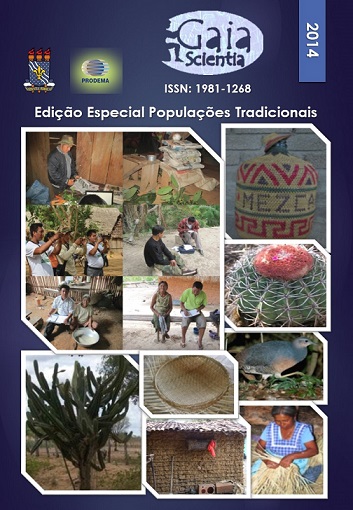Knowing native potatoes: finding local experts through innovative methods in the Peruvian Andes
Palavras-chave:
Agrobiodiversity, FCA, genetic diversity, local knowledge, Red List, SolanumResumo
The most significant long-term threat to agrobiodiversity, considered, is climate change. Driven by different transformation in climate and socio-cultural structure and also related the lack of collective knowledge of diversity about the Peruvian Andes. The identification and documentation of local ecological knowledge has recently become important in research, also acknowledging the importance of the farmer’s experience. Three communities in the district of Haquira (Pauchi, Queuñapampa and Huancacalla Chico) in Apurimac, Peru have been surveyed to identify and document the native potatoes name’s and to determine the actual state of potato landrace for long term monitoring. The objectives focused on identifying local experts and their knowledge using Five Cells Analysis (FCA) method and GIS Participatory for Red List, the factors taken into account for survey were biological, ecological, economic, social and cultural suggested by Community Biodiversity Registers (CBR). It was registered by focus groups household (n=61) and the methods employed quantitative sampling (GIS) and qualitative sampling (FCA), which complement allowing recognition 174 names of local varieties, 45 varieties have different taxonomic names and 42 varieties have 71 same taxonomic names in the three communities. The results provide us information systematization of native potatoes to prepare a master list that can be evaluated against genetic information.Downloads
Não há dados estatísticos.
Downloads
Publicado
2014-12-29
Como Citar
VALDIVIA-DÍAZ, M.; LA TORRE-CUADROS, M. de los Ángeles; POLREICH, S. Knowing native potatoes: finding local experts through innovative methods in the Peruvian Andes. Gaia Scientia, [S. l.], v. 8, n. 2, 2014. Disponível em: https://periodicos.ufpb.br/ojs2/index.php/gaia/article/view/22425. Acesso em: 18 nov. 2024.
Edição
Seção
Ciências Ambientais










